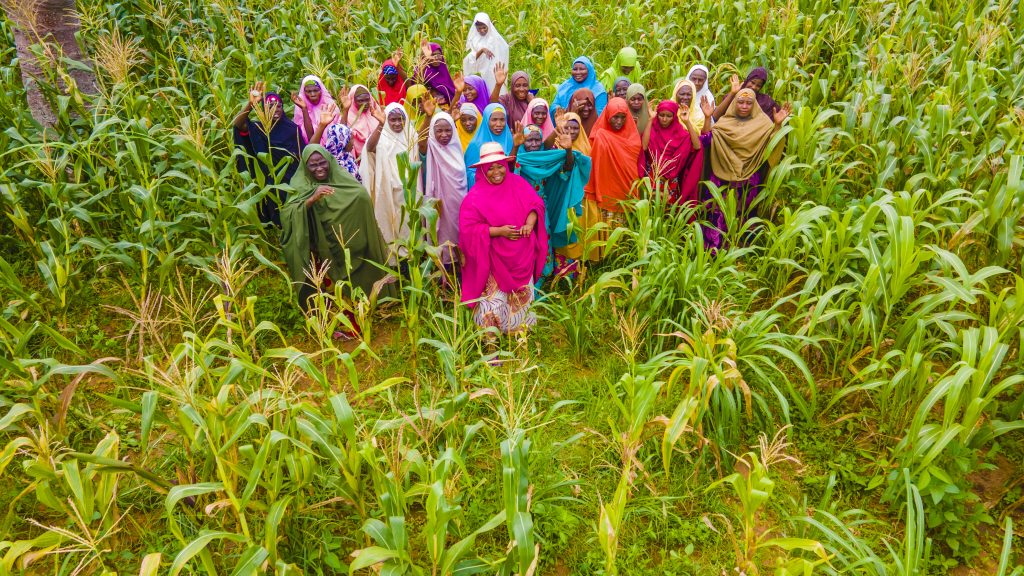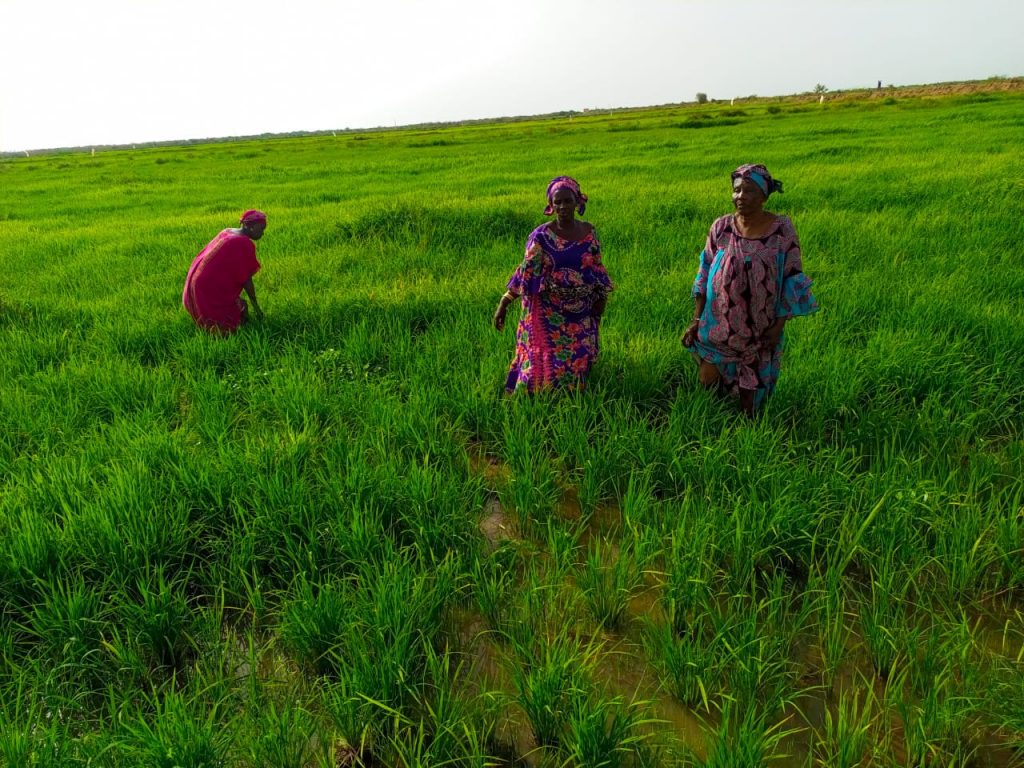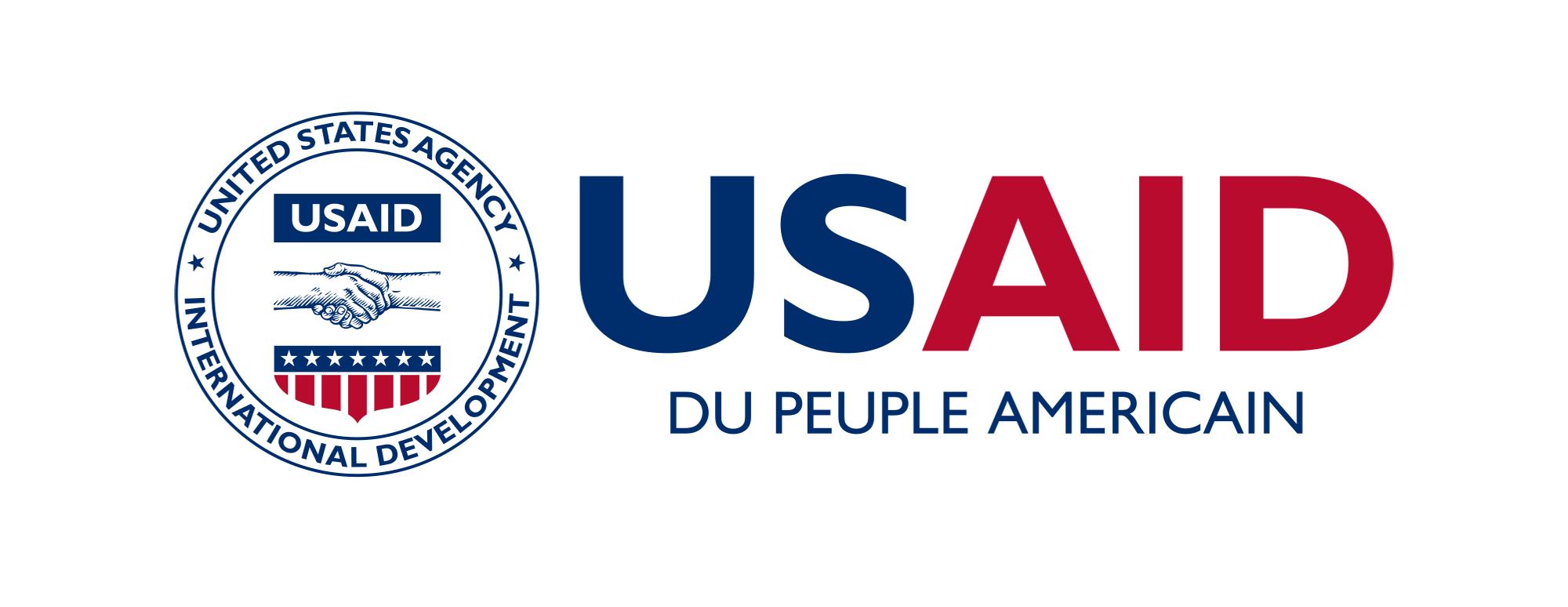According to the Africa Development Bank (AFDB), women make up almost 50 percent of the agricultural labor force in sub-Saharan Africa. These women work primarily in smallholder production; however, they receive a significantly lower share of income in comparison to men in the same sub-sector. Factors ranging from age, ethnicity, religion, and disability are barriers to women’s economic inclusion in the agricultural sector. In some countries, underlying cultural beliefs are at play, with some traditions in place that prohibit women from owning farmland. Additionally, lockdowns and border closures from the COVID-19 pandemic caused significant disruptions to food systems and markets, thus creating more challenges for women.
The USAID-funded West Africa Trade & Investment Hub (Trade Hub) is working to directly eliminate some of these barriers. Supporting businesses in the region through co-investment partnerships with private-sector companies, the Trade Hub aims to create 60,000 jobs (of which 50 percent will be for women and youth), boost agriculture, and provide support to female farmers.
The Trade Hub is on track to achieving its target of creating 60,000 new, well-paying private-sector jobs, with half dedicated to women and youth. Its two-pronged integration strategy – equal access to productive resources and the empowerment of women and youth – prioritizes co-investments that demonstrate sustainable outcomes for these two underserved groups. To date, the Trade Hub has created 39,766 jobs, 65 percent for women and 40 percent for youth.
Partnering with companies like Tomato Jos, Enterprise Salma, and Enterprise Aïssatou Gaye (EAG), the Trade Hub is promoting social inclusion by providing co-investment grants to women-led/owned companies and ensuring equal access to productive resources.
Boosting Productivity, Income, & Resilience of Smallholder Farmers
Maize and soybean are two staple food crops in Nigeria, especially in northern Nigeria where smallholder farmers are concentrated. However, Nigeria’s domestic production of maize and soybean is insufficient to meet national demand. The shortfall is compounded by social and economic limitations that smallholder Nigerian farmers face—inefficient and outdated farming techniques, lack of access to the market, and reliable buyers, among others.

The USAID-funded West Africa Trade & Investment Hub awarded a $1.2 million (492 million Naira) co-investment grant to Tomato Jos, a woman-led company based in Nigeria, to boost the productivity, incomes, and resilience of 4,000 maize and soybean smallholder farmers in northern Nigeria’s Kaduna State. The partnership is creating full-time contractor jobs for these 4,000 smallholders, of which 60 percent are women. By the end of the activity, Tomato Jos aims to produce 3,600 metric tons (MT) of maize and 400 MT of soybean and train these 4,000 smallholder farmers in modern agricultural techniques.
Tomato Jos has created 1,156 full-time contractor jobs for smallholder farmers, with 60 percent being women. Currently, Tomato Jos has 63 female lead farmers who help extension workers easily manage eight different farmer groups to achieve their targets and goals. Through this partnership with the Trade Hub, Tomato Jos is prioritizing women and youth inclusion in agriculture, improving the quality of the comprehensive agronomic training program for farmers, and increasing model farm and outgrower schemes to cover more locations for maize and soybean farming.
Taking a Lead on the Production of Animal Feed
In Niger, 87 percent of the working population practices livestock production, which constitutes a significant contribution to the agricultural economy. The Trade Hub awarded a $439,355 co-investment grant to Entreprise SALMA for the production and commercialization of enriched and compounded animal feed in Niger. The grant will help Nafissa HAMIDOU ABDOULAYE, the CEO of Enterprise Salma to modernize the feed production capacity and strengthen the quality and quantity of the supply of raw materials from local producers, to increase Entreprise SALMA’s sales as well as the producers’ incomes.
Through this co-investment, Enterprise SALMA has successfully trained 54 smallholder farmers on good agricultural practices in the Maradi, Zinder, and Tillabery regions, and started constructing the new animal feed mill processing plant in Kobontafa, Niamey that will increase their production capacity from 1,300 MT to 4,000 MT/year. By making available finished and ready-to-consume livestock feeds, and empowering smallholder farmers, Enterprise SALMA’s contribution to the livestock value chain is impacting food security in Niger and the neighboring states, currently and in years to come.
Nurturing Women-led Paddy Farmers
Smallholder rice farmers in West Africa experience challenges accessing and managing arable land, obtaining agricultural equipment, and recruiting skilled labor. In Senegal, these challenges predominantly affect women and youth who form the majority of the workforce.

In May 2021, Aïssatou Gaye a Senegalese businesswoman was awarded a $450,842 co-investment grant, by the USAID-funded West Africa Trade & Investment Hub awarded, to increase its production of white rice in Senegal and help reduce the country’s dependence on imported rice. Through this co-investment partnership, she will create and sustain jobs for 700 new rice producers and factory and farm workers, generate at least $7 million in sales to wholesalers by the third year of the project, and increase the company’s area of cultivated land for rice from 1,753 to 2,128 hectares. Her company Enterprise Aïssatou Gaye (EAG) will leverage $5.3 million in private capital as part of its 3-year partnership with the Trade Hub.
Aïssatou Gaye through this co-investment partnership has onboarded 928 women, paddy producers. She has also hired 16 women as administrators and has employed approximately 30 young people who work as day laborers and dockers. With the rice factory operating at an optimal level, roughly 10,000 tons of paddy is processed, which is 6,500 tons of white rice per year. As a result of EAG’s Increased paddy cultivation and processing factory, the company is ensuring the availability of staple food while also reducing the country’s dependence on imported rice.
With the successes recorded thus far, the Trade Hub will continue to leverage its partnership with existing companies and work with new businesses to include women and youth as partners, not only to provide them with more varied opportunities but also, to capture their innovation and unique perspectives to advancing and championing social inclusion in the agricultural sector.

